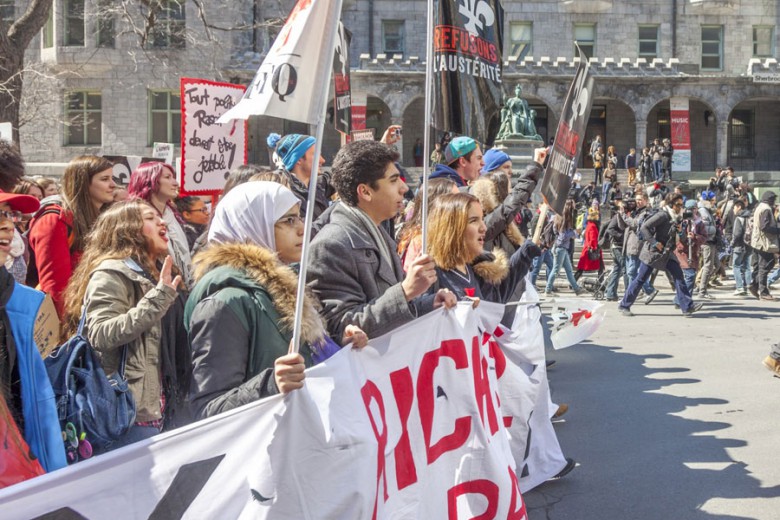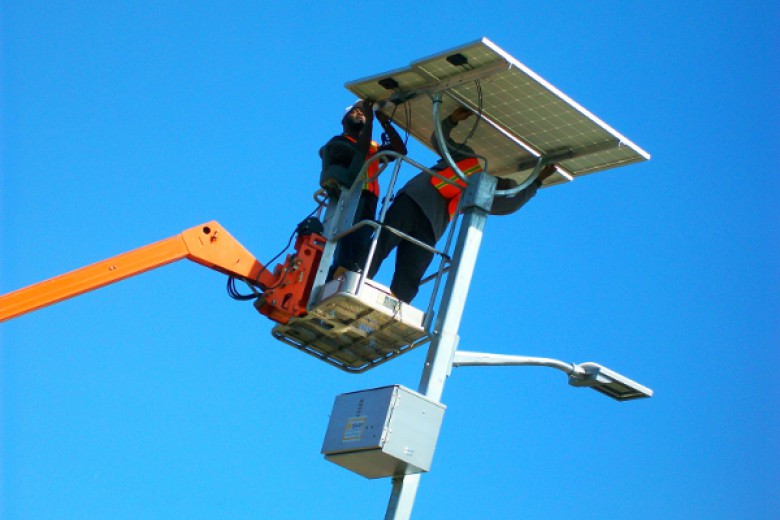“We felt like we put the knife in our own backs.”
Kateri Saabe Ikwe Phillips is a high-school teacher at Hollow Water First Nation, on the southeast side of Lake Winnipeg. She is also a member of Camp Morning Star, a camp set up in February 2019 to stop the mining of silica sands by Alberta-based company Canadian Premium Sand (CPS). The camp was established on a road leading to the initial planned site of CPS’s Wanipigow Sand project – wanipigow being the Ojibwe word for Hollow Water. The site had been clear-cut years before, and although plant life is beginning to re-emerge, the grey, leafless sprigs of trees contrast starkly with the lush forest surrounding the camp.
Eating apple pie around the Camp Morning Star fire, members shared their disappointment with Manitoba premier Wab Kinew’s February 2024 decision to approve the mine. Their riding of Keewatinook is consistently NDP or Liberal. While community members didn’t expect the previous provincial Progressive Conservative government to understand their concerns, some believed the NDP would sympathize with locals.
MJ McCarron at camp. Photo by Owen Schalk.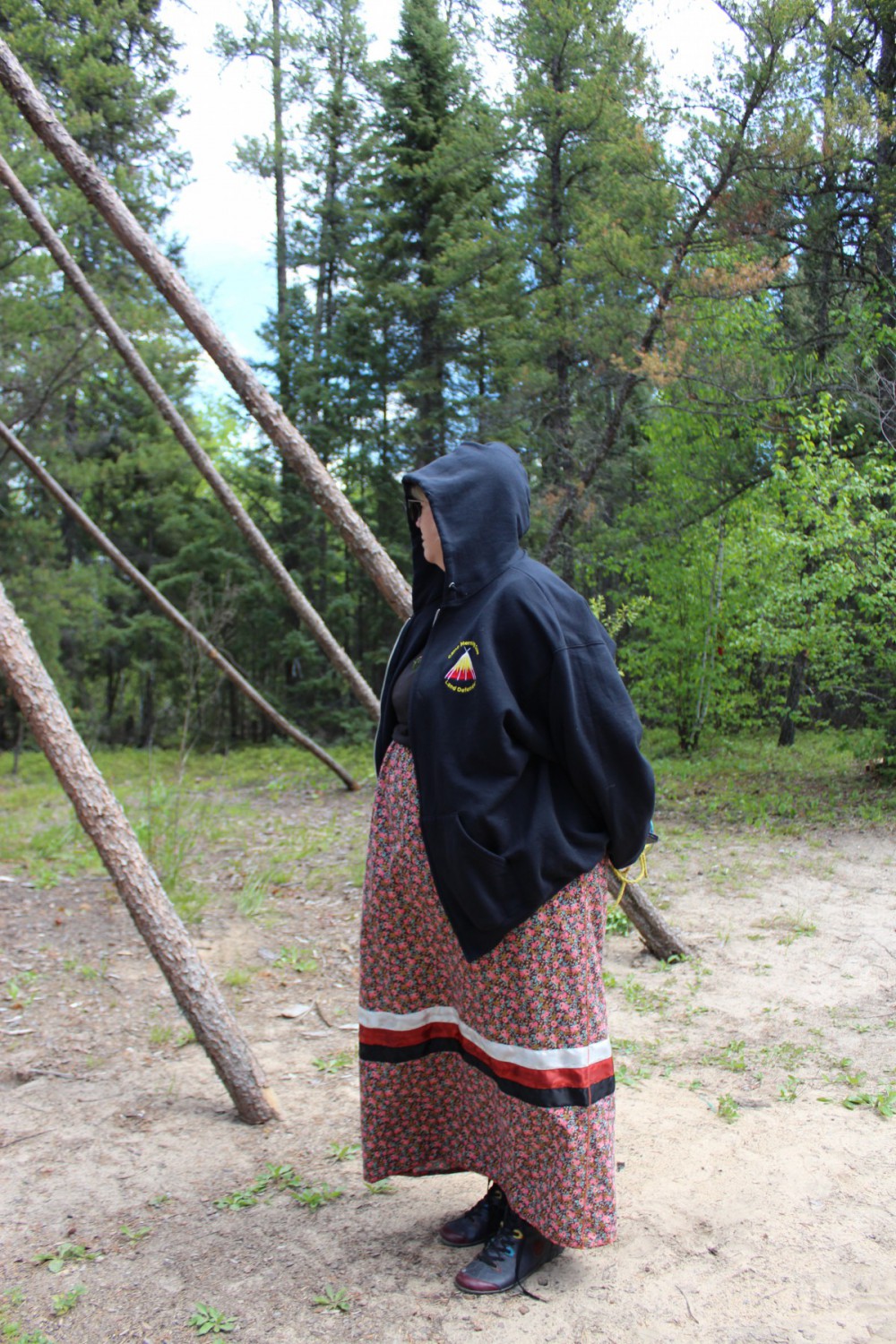
When Kinew, the province’s first premier of First Nations descent, approved the project, many camp members felt betrayed – the stab in the back to which Phillips referred.
“It’s environmental racism”
As the rush for critical minerals spreads across Canada and the world, demand for silica sand is rising. The sand is an important component in green technologies like solar panels, semiconductors, and batteries. Getting hold of it allows Canada and its Western allies to compete with their geopolitical foe, China.
In Manitoba, there are two mining companies at the centre of the discord around silica extraction: Sio Silica and CPS.
Around the southeastern community of Vivian, the proposed Sio Silica mine provoked worries about damage to soil and degraded air quality. The company also planned to extract the sand from groundwater, raising fears of water drawdown (lowering groundwater levels through a dam or other structure) and contamination.
In February of this year, Kinew announced that the Manitoba government had decided not to issue an environmental licence to Sio Silica. While saying no to Sio, however, Kinew said “yes to CPS.” He added that the silica mine near Hollow Water, which Camp Morning Star has been resisting since 2019, “is part of our government’s critical mineral strategy and will bring a significant economic benefit to Manitoba while growing our low-carbon economy.”
Phillips describes the Manitoba government’s decision to say no to Sio while saying yes to CPS as environmental racism.
Though CPS was greenlit in part due to its “proven mining technique,” many of the concerns that caused community backlash to Sio Silica also apply to CPS’ Wanipigow Sand project. Specifically, camp members are worried about water pollution from acid drainage, silica dust exposure causing silicosis and cancer, and the dangers posed by sand trucks on the narrow road from Pine Falls to the mine site.
There are also racial and geographical factors at play. The population of Springfield – the rural municipality in which Vivian is located – is predominantly white, and many residents are involved in the agricultural sector, one of the province’s important economic contributors. Vivian is also located in southern Manitoba, where most of the provincial population lives. In fact, 56 per cent of Manitobans (about 750,000 people) live in the capital of Winnipeg, about an hour west of Vivian. By contrast, the more remote Keewatinook riding has a population of less than 18,000, 98 per cent of whom identify as Indigenous.
Phillips describes the Manitoba government’s decision to say no to Sio while saying yes to CPS as environmental racism. “The roots of this go back way before Wab and his government,” she says. “The policies that have been in place for years were used against us.”
“We have never abandoned who we are”
Camp Morning Star was started by members of Hollow Water First Nation to defend their lands from the silica mining that has been endorsed by Hollow Water chief and council. Photo by Kevin Settee.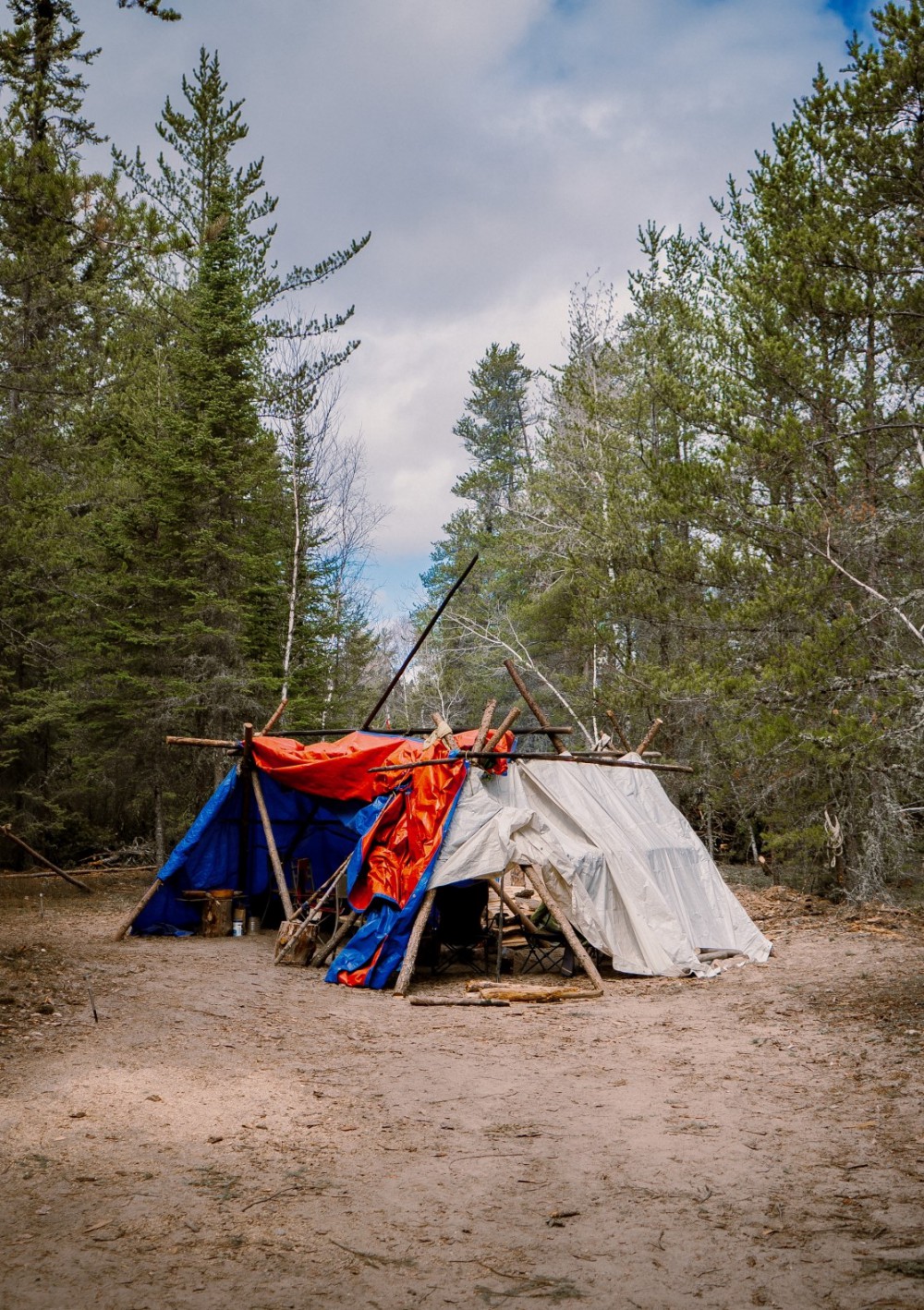
Community members were also concerned that CPS had signed a memorandum of understanding with Hollow Water Chief Larry Barker that included a $250,000 payment to the reserve government. Many in the community felt that the mine was proceeding without proper Section 35 consultation, especially after a site clearing that destroyed a community trapline.
Under Section 35 of the Constitution Act, the Canadian government “has a duty to consult and, where appropriate, accommodate Indigenous groups when it considers conduct that might adversely impact potential or established Aboriginal or treaty rights.” Section 35 rights are communal rights: they relate to the ability of Indigenous nations to sustain their communities, traditional ways of living, and practise their constitutionally protected rights.
Camp members accuse the chief and council of bypassing their Section 35 rights by signing the memorandum without community consultation. Indeed, only after signing the agreement with CPS did Hollow Water leadership approach the provincial government about funding a consultation process.
The government of Hollow Water First Nation did not reply to a request for comment.
Camp Morning Star believes this consultation process, despite being funded by the province, was fully controlled by the chief and council. Community members had no input into the design of the process, and assert that consultation only occurred after irrevocable decisions – including the destruction of the trapline – had been made.
For the Hollow Water community, the trapline’s destruction was a motivating factor in the creation of Camp Morning Star. “It takes away the ability to practise your treaty right of trapping,” explains McCarron. “But the chief has the right to [override collective rights]. We see that as a huge problem that’s being exploited by mines.”
Local ecology has also suffered. Deer habitat near the mine site, also used by moose, was flattened. On one occasion, Hollow Water residents found a baby moose on the reserve surrounded by barking dogs. They put a blanket over the moose’s head and returned it to the forest.
The dismantling of the community trapline, the clear-cutting of forest, and the apparent forfeiture of the community’s Section 35 rights by the chief and council has led some community members to take matters into their own hands.
On the night of February 15, 2019, five men erected a tipi and prospector tent on the access road leading to the proposed mine site, hoping to draw attention to their plight. They named the camp after John Hardisty, spirit name “Morning Star,” one of the original signatories of Treaty 5.
Marcel Hardisty is an Anishinaabe Elder and a direct descendant of Morning Star. Surrounded by trees tied with ribbons representing the four colours of the medicine wheel, Hardisty asserts that the five men who occupied the access road that night “believed in the vision” of John Hardisty and Treaty 5.
We are the people, we are the land, and as such we carry the responsibility to protect, care, and keep Mother Earth most sacred for generations to come. We have never abandoned who we are and what we have been given and we have not abdicated our responsibilities under our laws.
A proper consultation did not take place, says Marcel Hardisty: “It was a show and tell by the company.” As such, CPS sidestepped the matter of community resistance – resistance rooted in Anishinaabe teachings about the need for reciprocity between the human and non-human worlds.
“Everything that Creator made, part of his spirit is in that,” says Hardisty. “All of that would live forever if there were no humans. What is our role and responsibility [in that]?”
Taped to a trunk beside us, I notice a document marked “FOR IMMEDIATE RELEASE.” It laid out the camp’s philosophy, and in doing so, seemed to answer Hardisty’s question:
We are the people, we are the land, and as such we carry the responsibility to protect, care, and keep Mother Earth most sacred for generations to come. We have never abandoned who we are and what we have been given and we have not abdicated our responsibilities under our laws. Individual Indian Act-defined chief[s], councillors and band councils, held to be federal entities, do not carry those authorities.
“The two worldviews are colliding”
After establishing Camp Morning Star, the group found themselves under immediate RCMP surveillance. Documents obtained through the Freedom of Information Act, and shared with Briarpatch, show that, over approximately six weeks, the RCMP kept a close eye on the camp, collecting intelligence on their activities.
Through this, Camp Morning Star has hosted a variety of visitors, including environmentalists and high school students.
“Why would you have one person who can sign away anything? How is that local governance?”
Initially, some community members felt optimistic about the mine because CPS promised to bring hundreds of jobs. In early November 2022, however, the company applied for a “notice of alteration” with the provincial government, changing the project from a frac sand mine to a glass sand mine. The difference comes down to size and chemical composition, with glass sand requiring an extremely high silica content. Elder Marcel Hardisty at the site of a former silica mine near Hollow Water which was operating until the 1990s. Photo by Kevin Settee.
In switching from frac sand to glass sand, CPS moved the processing plant away from Hollow Water and into the city of Selkirk, two hours south – and moved the jobs with it.
Many locals feel the longer the project drags on, the fewer benefits it seems to yield. Even so, CPS and Hollow Water’s chief and council retain the power to push ahead with the mine, despite continued community resistance. The power of chief and council to sign away community rights is a central concern of camp members. “Why would you have one person who can sign away anything?” asks McCarron. “How is that local governance?”
For camp members, the company’s ability to force the mine into development without proper consultation is evidence of Canada’s continued colonial realities.
“It’s the second coming of colonialism,” says McCarron. She emphasizes that when Europeans arrived in North America, they didn’t see trees: they saw paper and sap. They didn’t see soil: they saw farmland. They didn’t see rocks: they saw minerals to be exploited. The Europeans viewed everything through the lens of commodification. “That’s how Westerners see things, but you need balance. The two worldviews are colliding.”
During colonization, the Canadian government attempted to erase Indigenous cultures and worldviews. Through repressive measures like the Indian Act, reserves, residential schools, and the pass system, the Canadian state committed a genocide against Indigenous peoples from coast to coast.
The Canadian government also imposed a chief system on Indigenous peoples. For the Anishinaabe, this meant their traditional clan system was repressed, with the Indian Act only recognizing Indigenous governments composed of elected chiefs and councils – officials who, as the Wanipigow Sand project demonstrates, can sign away community rights if they so desire.
The erosion of traditional governance, paired with legislation aimed at promoting resource extraction, has allowed the Canadian state to sideline Indigenous communities while exploiting their local natural wealth.
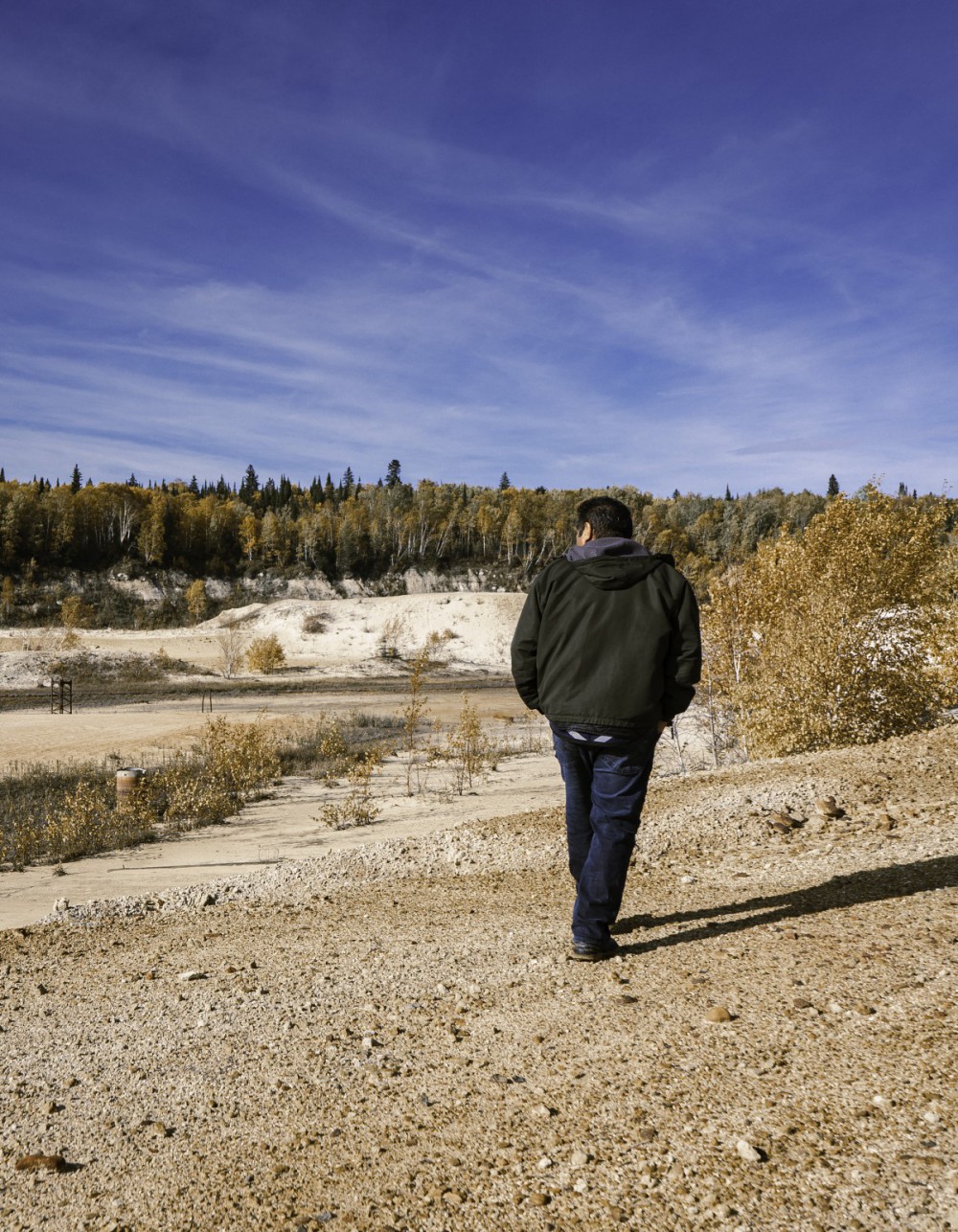
“They’re greenwashing this project”
Since February 2019, Camp Morning Star has garnered support from organizations including the Manitoba Energy Justice Coalition, the Securing Indigenous Peoples’ Rights in the Green Economy Coalition, and Cultural Survival. However, the camp has also faced opposition from some people within the community. According to members, the camp has been burned down twice. They say Lance Wood, a counsellor at Hollow Water, lost his job after supporting Camp Morning Star (camp members appealed his firing with the Manitoba Labour Board but lost). They also say Kateri Phillips was almost fired from her job at Frontier School Division for her support of Camp Morning Star, but her principal supported her.
Tensions have faded in recent years as CPS struggles to attract investment for the project, though hostilities will likely return once the mine becomes operational. None of the group’s main grievances – about Section 35 rights, air quality, water quality – have been adequately addressed.
Despite concerns about neglected rights, ecological degradation, and pollution, the Manitoba government has labelled the Wanipigow Sand project a milestone in Canada’s sustainable transition. When announcing the mine’s approval in February, Environment and Climate Change Minister Tracy Schmidt stated: “Manitoba has the opportunity to be a leader in clean energy.”
Camp members don’t buy it. “They’re greenwashing this project,” says McCarron.
In addition to the many social and environmental issues around the mine, CPS plans for two to three trucks of sand to leave the site every hour – certainly a large emissions contributor. Further, the solar glass manufactured in Selkirk will be shipped all the way to a solar panel facility in the U.S. state of Georgia, contributing to the Biden administration’s efforts to circumvent China by “onshoring” high-tech production. In fact, the Government of Manitoba has promoted Wanipigow Sand as a successful example of onshoring: “The project [...] will appeal directly to countries like the United States that are looking to onshore manufacturing inputs.”
To the camp’s dismay, the project has also been branded an exemplary case of reconciliation with Indigenous peoples. CPS even received an award for reconciliation from the Manitoba Prospectors and Developers Association.
As Canada positions itself as a critical mineral source, Indigenous governments are under increasing pressure to develop these mineral deposits. The same is true worldwide: 54 per cent of the minerals needed for the energy transition are located on or near Indigenous lands. Companies are pushing Canadian governments to help extract these minerals more quickly. In the pro-industry Canadian Mining Journal, Jon Wojnicki and Lance Mortlock write that delays in mine development are “massively hindering our aspirations to be a player in the U.S.-led initiative challenging China’s dominance in the sector.”
The dynamics surrounding Camp Morning Star – lack of consultation, ecological threats, social tensions, geopolitics – are a microcosm of both the extractivism of the Canadian state and the global dynamics of the minerals rush as a whole.
“We haven’t seen half of what’s coming”
“Who decides what places – or whose homes – are sacrificed for the ‘green’ revolution?”
Analysts such as Christopher Pollon, author of Pitfall: The Race to Mine the World’s Most Vulnerable Places, have pointed out the “clean energy” transition is reproducing the dynamics of capitalist extractivism. Local agency is undermined while profits accrue to large corporations. Meanwhile the surrounding environment, including its human and non-human inhabitants, are harmed in manifold ways. This reality gestures to the following question, articulated by MiningWatch Canada’s board co-chair Alexandra Pedersen: “Who decides what places – or whose homes – are sacrificed for the ‘green’ revolution? [...] How do we secure the metals needed for our current civilization without destroying the environment, tipping politically fragile states, violating the rights of Indigenous Peoples and the most vulnerable in society?”
Camp Morning Star continues its work, spreading word about the need for consultation and free, prior, and informed consent. They plan to welcome more students in the future and educate them on traditional Anishinaabe teachings. The camp also wants to unite grassroots organizations around Manitoba into a province-wide workshop to share experience and advice for dealing with the mining industry – something that will only grow more urgent as demand for critical minerals in North America increases.
There are currently four active mines in Manitoba, but 68 projects with mineral resource estimates or exploration permits.
“I don’t think we’ve seen half of what’s coming,” says McCarron.
The Canadian government regularly highlights the need for reconciliation with Indigenous peoples, but camp members fear this reconciliation is occurring only at the level of rhetoric.
How, they ask, can the federal or provincial government pursue reconciliation when collective treaty rights are quashed, when threats to health and ecology loom, when province and country remain governed by colonial laws biased toward resource extraction?
If nothing changes, we can expect many Camp Morning Stars in the coming years.




